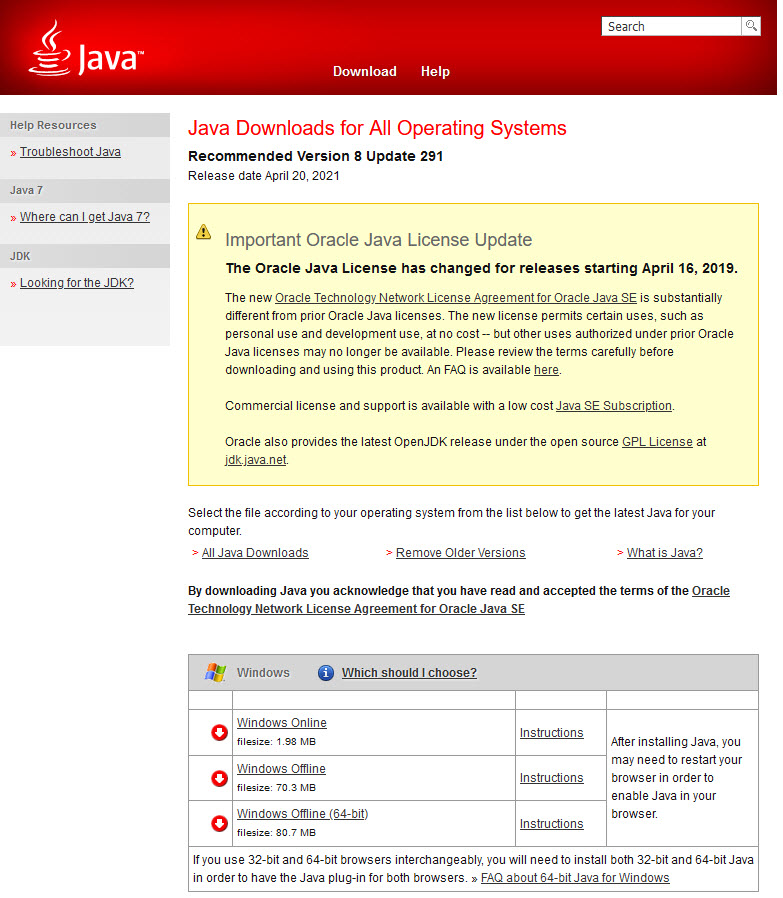

In Step 6 the msiexec.exe is called to uninstall old Javas, so the process runs at a normal pace. At this stage the Java Auto Updater will also be uninstalled. Usually only one instance of Java will remain, but if both the 32-bit and 64-bit Javas have the same latest version number, both of the Java versions (32-bit and 64-bit) will be preserved. In Step 6, if enough rights are granted (run as an administrator) Java-Update tries to remove the excessive duplicate Java versions, so that only those Java versions, which are deemed to be the latest, would remain. Java-Update tries to write several Java-related configuration files at an early stage, the " deployment.properties" -file in Step 4 and an Install Configuration File in Step 5 ( java_config.txt). The keys from HKLM:\Software\Wow6432Node\Microsoft\Windows\CurrentVersion\Uninstall\ and HKLM:\Software\Microsoft\Windows\CurrentVersion\Uninstall\ are read on 64-bit computers, and on 32-bit computers only the latter path is accessed.

Java-Update detects the installed Javas by querying the Windows registry for installed programs. The actual update process naturally needs elevated rights, and if a working Internet connection is not found, Java-Update will exit at Step 8. Java-Update downloads a list of the most recent Java version numbers against which it compares the Java version numbers found on the system and displays, whether a Java update is needed or not. JRE Family Version 8 is deemed to be "the latest" by this script, which only seems to be factually true concerning the 32-bit Java versions. Java-Update.ps1 doesn't seem to work with JRE Family Version 9 or later versions of Java. Partially obsolete, please see for further details.


 0 kommentar(er)
0 kommentar(er)
